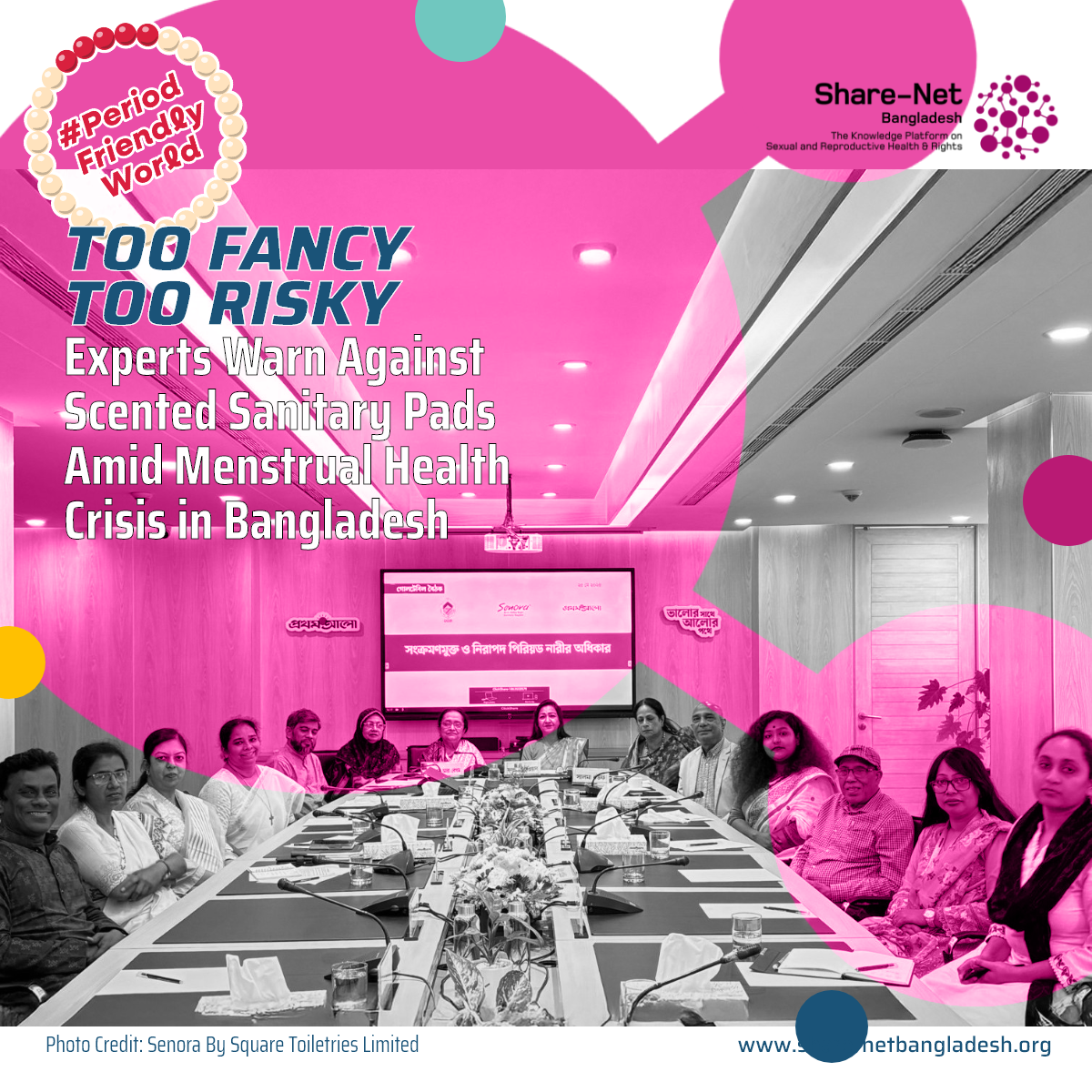Too Fancy, Too Risky: Experts Warn Against Scented Sanitary Pads Amid Menstrual Health Crisis in Bangladesh
At a recent roundtable organised by Prothom Alo in collaboration with Senora and the Obstetrical and Gynaecological Society of Bangladesh (OGSB), medical professionals raised urgent concerns about the use of fragranced sanitary napkins.
Experts warned that chemically scented napkins can disrupt the body’s natural defenses and increase the risk of cervical infections. With 97% of Bangladeshi women reportedly experiencing some form of cervical infection in their lifetime, experts are urging the public—especially young women—to steer clear of scented menstrual products.
The event also addressed the broader issue of menstrual hygiene management (MHM) in Bangladesh. According to a study by WaterAid Bangladesh, 71% of women and girls have used sanitary pads at least once in the past three menstrual cycles. However, many continue to rely on a combination of pads and cloth due to financial constraints. While nearly half of the respondents found pads affordable, 91% of women from low-income communities continued to use cloth due to cost concerns.
Affordability remains a significant barrier to the use of sanitary napkins. Industry insiders attribute the high prices to excessive duties on the import of raw materials, such as high-absorbent air-laid paper and adhesive tape. Despite the government’s VAT exemption on locally produced sanitary napkins since the fiscal year 2019-20, prices remain high, making them unaffordable for many women.
The lack of access to affordable and safe menstrual products has broader implications. Inadequate menstrual protection leads to adolescent girls missing at least three days of school each month. Similarly, women working in garment factories may miss up to seven days of work during their periods, impacting both their income and productivity.
To address these challenges, Senora and OGSB announced a campaign targeting 2,000 schools and 500 garment factories by 2030 to promote safe menstrual practices. Speakers at the roundtable called for free pad distribution in public clinics, tax waivers, and better education in schools, stressing that safer, unscented options must be affordable and accessible for all.
Experts also highlighted the importance of early education on menstruation. Deputy Secretary Tanzila Khanom emphasised the need to support young girls from the beginning of their menstrual journey and to raise awareness among parents. She advocated for school curricula to address menstruation openly, enabling young girls to discuss it with their peers and seniors.
While awareness around menstrual hygiene is growing in Bangladesh, significant challenges remain. Addressing the use of fragranced sanitary napkins, improving affordability, and enhancing education are critical steps toward ensuring better menstrual health and reducing period poverty in the country.
Source: Cablgram and Nutshell Today
Photo Credit: Senora by Square Toiletries Limited

